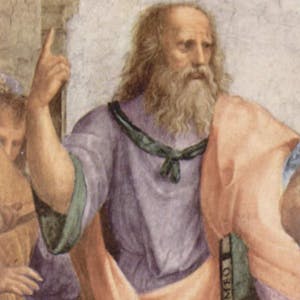Delve into the roots of Western philosophy with "Ancient Philosophy: Plato & His Predecessors." This course offered by the University of Pennsylvania traces the evolution of philosophical thought in Ancient Greece, exploring the fundamental questions that distinguish philosophy from other modes of discourse.
Throughout the course, you will journey through the works of influential thinkers such as Thales, Anaximander, Heraclitus, Parmenides, Socrates, and Plato. Uncover the development of philosophical systems and their impact on the understanding of reality, knowledge, and human happiness.
With an emphasis on critical thinking and ethical inquiry, this course provides a deep understanding of the historical and intellectual context that shaped the Western philosophical tradition.
Certificate Available ✔
Get Started / More Info
Delve into the philosophical journey from the Presocratic natural philosophers to Plato and his predecessors in this comprehensive course, exploring the fundamental questions that define philosophy.
Embark on an introductory exploration of Ancient Philosophy with a focus on the Milesians and Heraclitus. Uncover the fundamental questions that shaped the philosophical tradition in Ancient Greece, examining the concepts of ultimate constituents of reality and the underlying order to the changing world. Engage with thought-provoking discussions and readings to deepen your understanding of these foundational philosophical ideas.
Delve into the philosophical legacy of Parmenides and the influence of Plato, as you explore the prohibition against change and responses to Parmenides' objections. Investigate the ethical implications of Socrates' teachings and explore the impact of Parmenides on Plato's works, offering a comprehensive understanding of the philosophical developments in this period.
Uncover Plato's perspectives on virtue, teaching, and justice as you navigate through the Meno and Republic. Engage with thought-provoking discussions on the concept of virtue, the role of teachers in shaping virtue, the theory of recollection, and the exploration of justice as a virtue. Gain insights into Plato's ethical and political philosophy in this enlightening module.
Dive into Plato's theory of forms, the creation of the world, and the concept of the good in this enlightening module. Explore the intricate philosophical concepts presented in Plato's works, including the theory of forms, the relationship between the real and the good, and the mathematical physics outlined in the Republic and Timaeus. Engage in critical reflections and discussions to deepen your understanding of Plato's philosophical contributions.
Discover the interconnectedness of indigenous religions and ecology in this Yale University specialization. Explore the wisdom and practices of diverse indigenous...
Philosophy, Science and Religion: Religion and Science is a thought-provoking exploration of the intersection of philosophy, science, and religion. Delve into the...
Explore the history of skepticism from ancient times to the modern era, delving into its political implications and its influence on religion, natural law, conservatism,...
Explore the core values of East Asian Confucianism and its interaction with 21st-century Taiwan. Gain insight into the humanistic traditions of Confucianism, Daoism,...